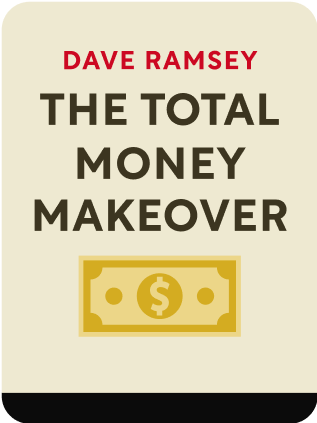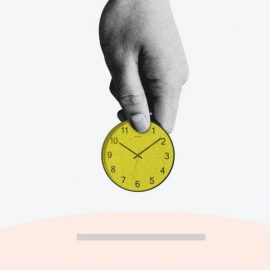

This article is an excerpt from the Shortform book guide to "The Total Money Makeover" by Dave Ramsey. Shortform has the world's best summaries and analyses of books you should be reading.
Like this article? Sign up for a free trial here .
What are the thoughts of Dave Ramsey on credit card debt? How does he characterize the comparison of credit card vs. cash?
According to Dave Ramsey, credit card debt is unnecessary. In considering a credit card vs. cash, cash is king.
Read on to better understand Dave Ramsey, credit card debt, and financial myths.
Myth According to Dave Ramsey: Credit Card Debt Is Unnecessary
People are often advised, particularly when they’re young, to get a credit card to build their credit. That’s equivalent to saying you need to start incurring debt so you can make it a way of life. According to Dave Ramsey, credit card debt is not needed.
Banks, mortgage lenders, retail stores, and car dealers push this myth because it benefits them.
But you only need to build credit by borrowing and making loan payments if you want to spend your life making loan payments. That’s why, according to Dave Ramsey, credit card debt is not useful.
Many people are proud of having a high FICO or credit score, which reflects how you’ve handled debt, including your debt payment history, debt amounts, length, and so on. However, another way of looking at a FICO score is as an indication of how much you love debt.
In a Total Money Makeover, you won’t use credit, except possibly to pay a mortgage.
Many mortgage lenders do rely exclusively on your FICO score out of laziness. But as of this writing, you could get a mortgage without a FICO score (no credit history), based on other measures, if you looked hard enough.
For a 15-year fixed-rate mortgage, instead of a FICO score, you need:
- A mortgage company that does underwriting
- A record of paying your rent early or on time for two years
- An uninterrupted record of on-time bill paying
- Two years in the same career field
- A down payment
- No previous credit
- A loan amount commensurate with your income: monthly payments should be no more than a quarter of your take-home pay
Debit Cards vs. Credit Cards vs. Cash
Another credit card myth is that you need a credit card to rent a car, make a hotel reservation, or shop online. But you can almost always do these things with a debit card associated with your checking account. Check with car rental companies in advance—most take debit cards, but a few don’t.
Of course, before you can buy anything with a debit card, you have to have the money in your account. But buying only what you can afford and not going into debt are central to the Total Money Makeover. A debit card does virtually everything a credit card does—except get you into debt.
Another myth is that a debit card is riskier to use than a credit card—this has almost become an urban legend. However, Visa requires that banks issuing Visa debit cards provide the same protections against theft or fraud as they do for credit cards. To get it, be sure to run the card as a credit transaction (not using your PIN).
Of course, you could also just pay with cash. You won’t buy more than you can afford if you only use the cash on hand to buy it.
Paying Off Your Card Monthly
Another credit card myth is that paying your bill in full every month gives you free use of other people’s money.
But while they may intend to, 60% of people don’t pay their full credit card bills each month. Thus, if companies can get you to accept and use a card (by giving prizes and points), they stand a good chance of making money on you. And offering rewards doesn’t cost them much because people often don’t claim them—for example, 90% of airline miles go unclaimed, according to MSNBC.com.
People also spend more when using credit cards than when paying with cash—for example, a study found that people spent 47% more at McDonald’s when using credit than with cash.
But credit card use leads to debt and worse. An American Bankruptcy Institute study found that 69% of people who filed for bankruptcy cited credit card debt as the reason.
Millionaires pay cash; less-smart people use credit cards.
Dave Ramsey: Credit Card Debt for Teens Sets a Bad Example
Parents often encourage teenagers to get a credit card, supposedly to learn financial responsibility. But getting a credit card teaches teens to buy what they can’t afford and incur debt, which is financially irresponsible and launches a lifetime of debt.
Young people, as potential life-long interest payers, are key targets for credit card companies, which portray getting a credit card as a rite of passage. It’s important for lenders to snag them early in life, because people tend to stick with the first bank that issues them a credit card. The marketing works: a majority of college seniors have credit card debt well before starting a career.
Credit card companies even work to build brand awareness among children by advertising through toys in hopes of influencing their choices later. For example, several Barbie dolls and accessories come with brand name toy credit cards.
Parents who encourage teens to get credit cards are endorsing something harmful. Instead, they should teach teens to say no to compulsive spending and debt. According to Dave Ramsey, credit card debt should be avoided at all ages, especially early on.

———End of Preview———
Like what you just read? Read the rest of the world's best book summary and analysis of Dave Ramsey's "The Total Money Makeover" at Shortform .
Here's what you'll find in our full The Total Money Makeover summary :
- The 7 steps to achieving financial stability (you'll love #7)
- A fool-proof plan for becoming debt-free
- How myths about debt and money are crippling your financial health






